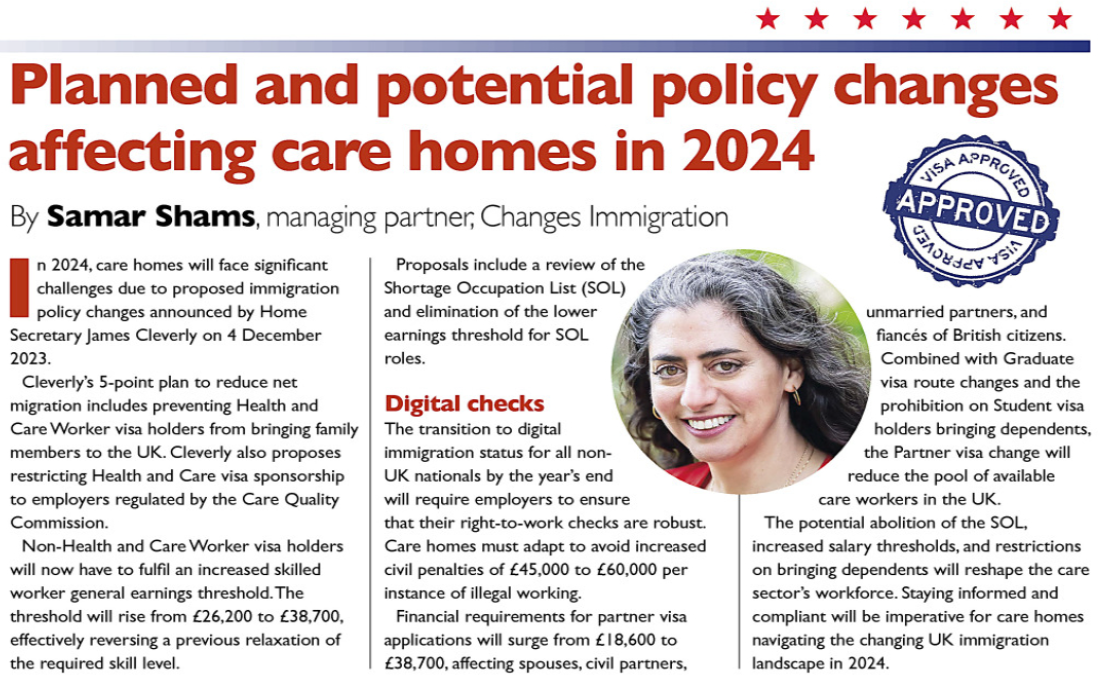The Home Office has shifted back to assessing sponsors’ applications for permission to sponsor workers, but is doing so within the sponsorship framework. The result is a massive waste of resources for sponsors and employers alike.
This article sets out how employers used to apply to the Home Office for work permits to employ foreign nationals. I discuss the sponsorship framework, within which employers apply for permission to assign work authorisation directly to foreign national employees. With such permission came the responsibility to fulfil sponsor duties, only assigning work authorisation in line with Home Office guidance, reporting changes, and keeping records, and a regime of compliance checking by the Home Office.
The two systems are now conflated and it is unclear how an incoming government might untangle them.
The Work Permit System
Back in 2007 when I started working in UK immigration law, if an employer wished to hire a non-EEA national to work, they would apply to the Home Office for a work permit. There were six categories of work permits, e.g. ‘Business and Commercial’ and ‘Sports and Entertainments’.
An assiduous employer might have reviewed a total of about 25 pages of guidance to help them draft and submit the work permit application. To be eligible for a work permit, a role had to require a degree or three years of relevant experience.
The work permit application form asked for details about the role and the worker. The heart of a work permit application was question 45, where the employer set out their reasons for needing to hire the individual and how they were suited to the role.
The old work permit guidance was brimming with email addresses and phone numbers for useful contacts, including seven work permit teams. If you had a question about the guidance or wanted to check on the status of a work permit application, you only had to pick up the phone to contact a work permit caseworking team.
The Home Office would decide the work permit application and the worker would use the work permit to apply for their UK visa.
The sponsorship framework
In November 2008, the Home Office introduced the sponsorship framework of work authorisation for non-EEA, now non-UK, nationals: The employer applies to the Home Office for a sponsor licence. Essentially, with a sponsor licence employers issue work permits, in the form of ‘certificates of sponsorship’, rather than the government doing so.
In order to navigate the 15 types of sponsor licence currently available and the many more types of certificates of sponsorship, an employer is required to review hundreds of pages of guidance. To be eligible for the privilege of a sponsor licence, the employer should be ready to demonstrate that they are able to fulfil the sponsor duties set out in the guidance.
Successive UK Governments have injected more and more complexity into the system over the years. In 2020, the Home Office shoehorned a points calculation into the salary requirements for the main category of sponsored worker, the Skilled Worker category. The government eschewed the advice of the public body that advises the government on migration issues, which had argued that a points calculation for salary was too uncertain and complex for employers to work with. The Skilled Worker salary points calculation introduced in 2020 included five salary points options. As of April 2024, there are eleven different salary points options for an employer to navigate.
Current processes
Whilst employers are shouldered with responsibility for adhering to the intricacies of sponsorship requirements, the Home Office has recently started to request a lot of information up front from employers, before allowing them to assign a certificate of sponsorship. Although a sponsor licence empowers an employer to issue work authorisation, the employer needs an allocation of the right type of certificate of sponsorship from the Home Office, for each worker to whom they wish to assign a certificate of sponsorship.
Sponsors must submit their reasons for requiring a certificate of sponsorship allocation. Historically, for certificates of sponsorship to support workers already in the UK or transferring from linked overseas companies, a sponsor could cite their business plan for growth or the need to fill roles to fulfil a particular contract or project. For workers from overseas, they would provide details of the role including job title, job details and salary, and would then usually receive an allocation within one working day.
Since April 2024, the Home Office has been requesting far more information to support applications for allocations of certificates of sponsorship. Sponsors are able to anticipate some of the information and documentation being requested because Home Office guidance outlines what to expect. The forms on the Home Office’s platform do not elicit the required information. Sponsors have to follow instructions in the guidance to provide the information, e.g. entering in the ‘Summary of job description field’ the required confirmation of the salary points option relied on and explanation of how the proposed worker fulfils same.
However, in respect of some elements of Home Office requests, the sponsor would only know what the Home Office wants after submitting an application for an allocation; sponsors are then having to scrabble to collate staff rotas and other documentation and provide same to the Home Office within a tight deadline.
Depending on the type of certificate of sponsorship allocation a sponsor is applying for, and salary point option they propose to use, examples of what they may now have to provide the following:
- Confirmation of the salary points option relied upon;
- An explanation of how the worker fulfils the relevant salary points option;
- The worker’s name, date of birth and nationality;
- Details of any contract the worker might work on;
- Copies of existing workers’ employment contracts; and
- Staff rotas.
The standard service for deciding an application for an allocation of COS for workers already in the UK or transferring from a linked overseas entity is 18 weeks. Sponsors may be able to access an elusive priority service for processing an allocation application in five working days, if they send the relevant request email the correct number of seconds before 9am on a weekday, so that the Home Office receives it within the first 60 requests for the day.
The worst of both policy worlds
In summary, the current processes conflate the old work permit system and the sponsorship framework under which the Home Office has ostensibly passed responsibility to sponsors for assessing the eligibility of a role and of a worker for UK work authorisation. As a result, a huge amount of public and private resources are wasted.
The government is having to maintain the bloated sponsorship framework, assessing roles and sometimes applicants at the work authorisation stage in an efficient and convoluted manner. The government is also having to maintain a system of enforcement against employers, including physical visits to sponsors and a ‘digital interviews’ which are essentially sponsor compliance visits conducted via correspondence.
Employers are less able to cope with the increasingly labyrinthine requirements and are often at risk of losing their sponsorship privileges despite a dire need for talent to function, much less grow.
What next?
Does the UK’s immigration system need an overhaul? Will the government scale back on its assessments of applications for allocations of certificates of sponsorship? There have been media reports of Sunak’s government leaving a poison pill budget legacy. Are they also leaving a poison pill immigration system? Whether or not the mangling of immigration processes was intentional, the incoming government has work to do and it will not be easy.








